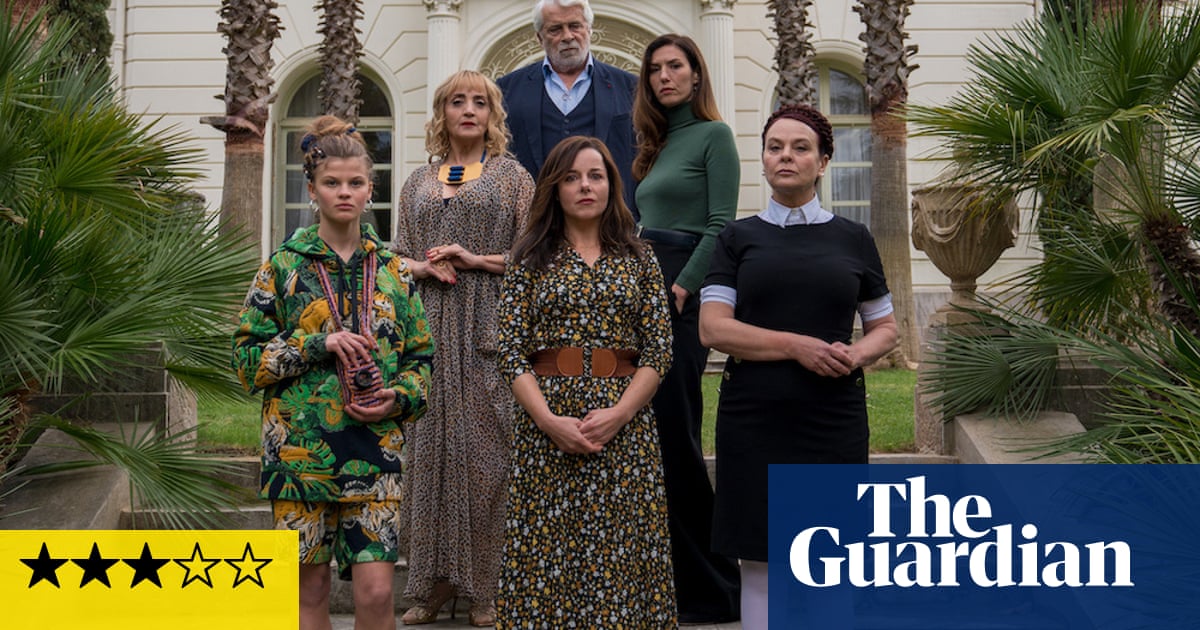
t took a while for Homeland (Channel 4) to realise its true calling as a showcase for TV’s greatest surrogate father-daughter relationship, but it finished the series, after eight seasons and 96 episodes, with that pairing very much at its heart.
The final episode was titled Prisoners of War, a homage to the Israeli series on which it was based, and a reference to the endless cycle of strike and counterstrike, confidence and betrayal, in which the intelligence officer Carrie (Claire Danes) and her long-time mentor, Saul (Mandy Patinkin), are trapped.
It’s been quite a journey. Many viewers didn’t get beyond the divisive season-one finale and more still left after the departure of Damian Lewis when Carrie’s lover/nemesis Sgt Nicholas Brody died at the end of season three. More fool them. They missed the show’s transformation into a fortune teller, eerily predicting contemporary news. Troll farms, Islamist attacks on European capitals, fake news, Russian electoral interference and a US president-elect at war with the intelligence services – all were covered. No other show has had a better handle on world events.
Season eight began with Saul brokering a historic peace in Afghanistan. But when a helicopter carrying the presidents of the US and Afghanistan crashed due to mechanical failure, the belligerent new Taliban leader falsely claimed credit, implicating Pakistan, and bringing the countries to the brink of a nuclear conflict. It may have been prescient, but Homeland was never a documentary.
With the new US president deferring to his hawkish foreign policy adviser, Carrie knows that only the flight recorder, in the possession of the Russians, will exonerate Pakistan and avoid nuclear armageddon. However, the Russians want something in return – the name of the spy Saul has been running at the heart of their intelligence machine for the past 20 years. Killing Saul will work fine, too, as he will have set up a failsafe procedure to pass on his most precious asset to his most trusted colleague – Carrie, who will be happy to give the asset up.
Needless to say, Saul is not thrilled when Carrie drugs him, interrogates him, then calls in a Russian kill team to finish him off with a lethal injection. All in a day’s work for these co-workers – but it’s a bluff and when Saul calls it, the goons are stood down.
This is Homeland, though, and this is Carrie. She has excelled through eight years of espionage, and always has one hustle left to save the world. She visits Saul’s sister Dorit in the West Bank to scam her out of the flash drive holding the identity of Saul’s spy – Anna Pomerantseva, the lead interpreter for Russia’s GRU intelligence agency. Trapped in the basement of the UN as GRU agents descend, Anna falls upon her sword (figuratively – being Homeland, she uses a gun).
The GRU director takes the glory and plays the flight recording at a press conference, ushering in a new era of Russian supremacy. The US’s last live asset in Moscow is dead and Russia’s chokehold on western democracy grows ever stronger. The GRU officer Yevgeny tells Carrie it is the cost of doing business. You burn assets, contacts, friendships because the mission is the mission.
Two years pass by. Carrie, Russia’s star defector, lives with Yevgeny in a god-tier apartment in Moscow. She has just finished her first book and, to celebrate, he takes her to see the jazz star Kamasi Washington in concert. It’s the discordant avant-garde jazz that has opened every show since 2011. It’s the very essence of Carrie’s Dionysian energy – chaotic, intuitive, transgressive.
Back in the US, Saul gets an advance copy of her book, a Snowden-esque memoir called Tyranny of Secrets – Why I Had to Betray My Country. It’s a real page-turner. Saul particularly likes the hidden message he extracts from the spine of the book about a backdoor in the Russian’s missile defence system. Carrie is the new asset. As the penny drops, Saul beams a smile of fatherly pride. Logistically, it’s entirely implausible, but emotionally, it’s the perfect conclusion – it’s Homeland in a nutshell.
As for Carrie, she’s still a prisoner of war but she’s getting by in her gilded cage, safe in the knowledge that she has got one over on them all. Tougher than the rest, madder than most and a junkyard dog in a tussle, she was American exceptionalism’s harshest critic and living embodiment. She found some kind of peace in embracing her true nature – living a lie, fated to pretend. This may be the end, but only a brave man would bet against her return.












